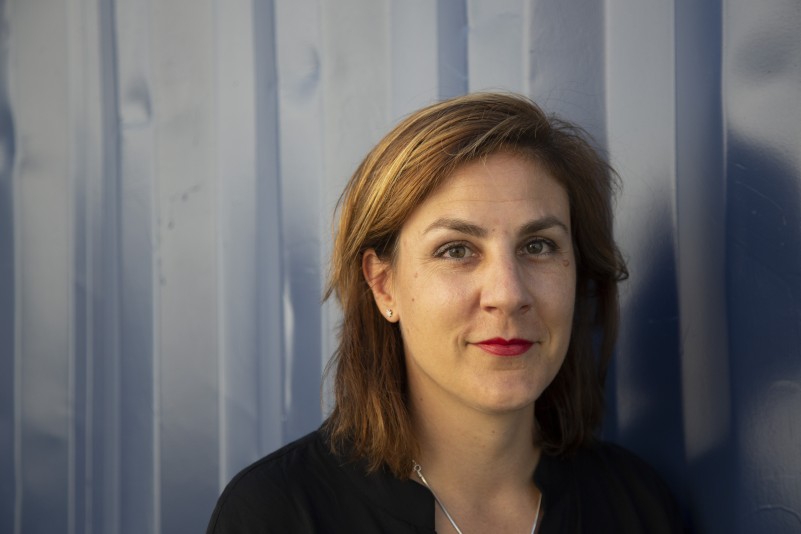Share post now

global
The Alliance Sud magazine analyses and comments on Switzerland's foreign and development policies. "global" is published four times a year (in german and french) and can be subscribed to free of charge.
Global, Opinion
04.10.2022, International cooperation
In mid-July, President Gotabaya Rajapaksa fled Sri Lanka like a hounded dog, but he returned at the beginning of September. For almost two decades, he and his brothers have determined the country's fate with an iron fist.

Protesters in the swimming pool of the presidential palace in Colombo after storming it in July 2022.
© KEYSTONE-SDA/EPA/CHAMILA KARUNARATHNE
By Karin Wenger
What played out at Sri Lankan President Gotabaya Rajapaksa’s residence on 9 July 2022 were scenes of rage and triumph: some people splashed about in the swimming pool, others danced on the villa’s front lawn, or took a midday nap in Rajapaksa four-poster bed. Thousands invaded the residence clamouring loudly for the President’s resignation. They blame him and his family for plunging Sri Lanka into its worst economic crisis since independence in 1948.
In May, the highly-indebted country became insolvent for the first time. The result was that the government could therefore no longer afford essentials like fuel, medicines and cooking gas. People had to cook with wood, and spend endless hours in line to buy vital medicines – if they could find them. Tens of thousands poured into the streets to protest against the government and to storm the residence. Shortly thereafter, the President fled head over heels on a military jet to the Madives, then on to Singapore, where he announced that he was stepping down. It was the flight of a man and the overthrow of a ruling family that had run Sri Lanka like a family business for almost 20 years.
I experienced Rajapaksa's arrogance first hand in 2010. Given to temper tantrums, Gotabaya was still Defence Minister at the time, his brother Mahinda had been President since 2005, while other brothers held key government positions. In May 2009, the Rajapaksas had ordered that the Tamil Tigers be crushed with the utmost brutality. By UN estimates, government troops killed some 40 000 Tamil civilians during the closing months of the fighting. Yet the Sinhalese majority population continued to revere President Mahinda and his brother Gotabaya, who had, after all, put an end to the 26-year civil war. All else seemed insignificant.
Back then, in January 2010, I was South Asia correspondent for Radio SRF and had travelled to Sri Lanka for the presidential elections. Although Mahinda Rajapaksa’s re-election was all but certain, he would still silence anyone who criticised him: the military surrounded the hotel where his political challenger Sarath Fonseka was staying; critical journalists disappeared; and Defence Minister Gotabaya threatened to burn down the building housing the opposition newspaper Lanka. On the very evening of the day when I asked two critical questions at a government press conference, a hotel staffer handed me a letter from the government: I was being expelled from the country. It was only under pressure from the international media, which had picked up the story of the deportation, that the government finally backtracked. Mahinda Rajapaksa personally invited me to lunch.
Shortly after the elections, I therefore found myself sitting with a re-elected President Mahinda Rajapaksa at a long table draped in white. Rajapaksa slurped his soup as he delivered his answers via the microphone. He jovially laughed off questions about his government's human rights abuses, answering instead: "I plan to press ahead with my country’s development, that is the top priority. I have invited all countries to invest in Sri Lanka and I want to promote tourism." But out of scepticism, many Western countries made their approval conditional on the Sri Lankan Government’s commitment to respecting human rights. China made no such demands and therefore became one of the country's leading lenders over recent years. Chinese loans paid for costly projects that did little for the country, but much more for the ego of the Rajapaksas.
With a loan from China worth over a billion US dollars, for example, the government built a deep-sea port in Hambantota, the Rajapaksa home town in the south of the country. Both western powers and India were concerned that in so doing, China was shoring up not just its economic power but also its military power in the Indian Ocean. That worry proved well-founded when, in 2017, Sri Lanka had to lease the port to China, as the government was unable to repay the billion-dollar loan. By that point, Mahinda Rajapaksa was no longer President, having lost the 2015 elections. Yet in 2019, the Rajapaksa family staged a political comeback: Gotabaya became President, and his brother Mahinda Prime Minister. In August, just weeks after Gotabaya Rajapaksa had fled the country, a Chinese military surveillance vessel, the "Yuang Wang 5", docked in Hambantota Harbour. The loan had paid off for China, but not for Sri Lanka.
In retrospect, the development of Sri Lanka, which Mahinda Rajapaksa had declared to be his priority at our luncheon 12 years ago, amounted to a sell-out of the country, and its looting by the Rajapaksa family. They were not rulers for everyone, but instead emperors without clothes.

Karin Wenger was South Asia correspondent for Radio SRF from 2009 to 2016, based in New Delhi, and South-East Asia correspondent based in Bangkok from 2016 to 2022. In the spring, she published three books about her time in Asia. www.karinwenger.ch
Share post now

global
The Alliance Sud magazine analyses and comments on Switzerland's foreign and development policies. "global" is published four times a year (in german and french) and can be subscribed to free of charge.